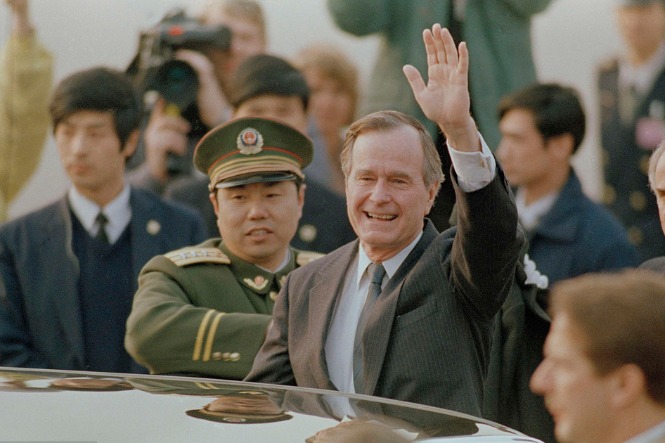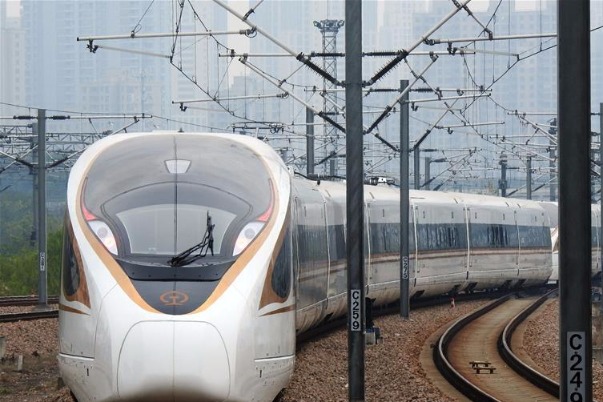China, US should rebalance economic strategies: expert
The US and China should both be rebalancing their economic strategies, but the United States has been "resisting" rebalancing, still relying heavily on China for the country's deficits, long-time China hand Stephen Roach said on Tuesday.
Roach said that China has been faster to realize that it cannot keep having a codependent relationship with the US.
"China gets the idea that imbalances that come from a strategy or relationship of codependency are unsustainable. And you can debate the risks of China that everybody's worried about — property bubbles, debt overhangs, and all these other uplifting characteristics of China — but China's making progress. They have a plan; they have 60 articles of reform under the Third Plenum. The economy is turning as we speak," Roach said in an address at China Institute in New York.
Issues in the US-China relationship are coming "close to a boil" because the two countries have been too codependent on each other, said Roach, who published Unbalanced: The Codependency of America and Chin in January.
The relationship, while "fascinating and challenging", is at risk of becoming a troubled one because of the two countries' economic over-reliance on each other, he said.
"They turned to each other innocently at first, in an effort to solve their individual problems, to satisfy their needs with respect to economic growth. In many respects, it was a marriage of convenience," said Roach, a senior fellow at Yale University's Jackson Institute of Global Affairs. "What came out of the marriage of convenience was the economic version of a worrisome codependency. Codependency, as a psychologist would tell you, is a relationship between two individuals that relies disproportionately on the other to satisfy their own needs."
The codependency is leading to severe tensions that have made headlines repeatedly in the last few years, he said, including the two countries' dispute over currency manipulation, East and South China Sea conflicts, and the US pivot to Asia, about which China has shown concern.
China is trying to encourage a consumer and services-led economy, and putting its savings to use in funding its own people, Roach said, building a social safety net for its aging population. The US, on the other hand, has been "resisting" rebalancing, still relying heavily on China for the country's deficits, he said.
"The rebalancing is, in short, an asymmetrical one, with China doing it and the United States resisting. So when you put it together, what do you get? We still need savings to grow, but our primary external source of saving is China," he said. "How are we going to fund our deficits? Who's going to take China's place?"
One solution is for the US to focus on the growth opportunity available in China's small but potentially enormous services sector, which Roach estimated will expand by roughly $12 trillion between now and 2025. "Shame on us if we can't focus on that as our next growth opportunity," he said.
Roach said that he wrote Unbalanced to serve as a "warning" to government officials on the perils of the two countries not changing their approaches to economic growth, which has resulted in the two countries playing the "blame game". The issue most recently came to a head with the US Justice Department accusing five members of the Chinese military for hacking into US companies and stealing trade secrets, the first time the US has formally indicted a foreign country for cyber espionage.
On the eve of the annual US-China Strategic and Economic Forum in July, where high-level officials from both countries are set to meet to discuss a range of issues, Roach said he worries about "what may or may not happen" at the bilateral forum.
"Codependency, which is where we are right now, is inherently an unhealthy relationship, where your partner is there for one reason, and that reason is to serve you. It leads to frictions. It leads to a blame game, and ultimately it leads to a break-up in the relationship," he said. "I would contrast that with a healthier relationship called interdependency, where each partner serves its own self and accepts responsibility for its own actions. And yet relies on the other in constructive interactions to promote its own sense of self-driven prosperity."
|

Stephen Roach, senior fellow at Yale University's Jackson Institute of Global Affairs, gave remarks in New York about the codependent US-China relationship. Roach published "Unbalanced: The Codependency of America and China" in January this year. Amy He / China Daily
|


















